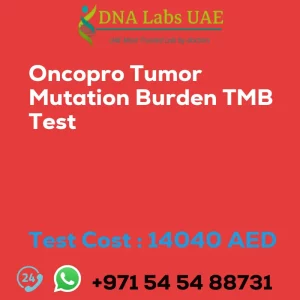IMMUNOHISTOCHEMISTRY CYTOKERATIN-20 CK-20 Test
Test Cost: AED 500.0
Test Components:
- Price: 500.0 AED
Sample Condition:
Submit tumor tissue in 10% Formal-saline OR Formalin fixed paraffin embedded block. Ship at room temperature. Provide a copy of the Histopathology report, Site of biopsy and Clinical history.
Report Delivery:
- Sample: Daily by 6 pm
- Report Block: 5 days
- Tissue Biopsy: 5 days
- Tissue large complex: 7 days
Method:
Immunohistochemistry
Test Type:
Cancer
Doctor:
Oncologist, Pathologist
Test Department:
Pre Test Information
Test Details:
The immunohistochemistry (IHC) test for cytokeratin-20 (CK-20) is used to detect the presence of CK-20 protein in tissue samples. CK-20 is a type of intermediate filament protein that is primarily found in the gastrointestinal tract, urothelial cells, and Merkel cells. The CK-20 IHC test is commonly used in the diagnosis and classification of various types of cancer, particularly colorectal cancer and urothelial carcinoma. It helps to differentiate between different types of cancer based on the presence or absence of CK-20 protein.
During the CK-20 IHC test, a tissue sample (usually obtained through biopsy or surgery) is processed and embedded in paraffin wax. Thin sections of the tissue are then mounted onto slides. These tissue sections are then treated with specific antibodies that are designed to bind to the CK-20 protein. If CK-20 protein is present in the tissue sample, the antibodies will bind to it, forming a visible reaction. This reaction can be visualized under a microscope, allowing pathologists to determine the presence and distribution of CK-20 protein in the tissue.
The results of the CK-20 IHC test can help guide treatment decisions and provide important prognostic information. For example, the presence of CK-20 protein in colorectal cancer tissue suggests that the tumor originated in the gastrointestinal tract rather than another location. Overall, the CK-20 IHC test is a valuable tool in the field of pathology and oncology, helping to improve the accuracy of cancer diagnosis and classification.
| Test Name | IMMUNOHISTOCHEMISTRY CYTOKERATIN-20 CK-20 Test |
|---|---|
| Components | |
| Price | 500.0 AED |
| Sample Condition | Submit tumor tissue in 10% Formal-saline OR Formalin fixed paraffin embedded block. Ship at room temperature. Provide a copy of the Histopathology report, Site of biopsy and Clinical history. |
| Report Delivery | Sample Daily by 6 pm; ReportBlock: 5 days Tissue Biopsy: 5 days Tissue large complex : 7 days |
| Method | Immunohistochemistry |
| Test type | Cancer |
| Doctor | Oncologist, Pathologist |
| Test Department: | |
| Pre Test Information | Provide a copy of the Histopathology report, Site of biopsy and Clinical history. |
| Test Details |
The immunohistochemistry (IHC) test for cytokeratin-20 (CK-20) is used to detect the presence of CK-20 protein in tissue samples. CK-20 is a type of intermediate filament protein that is primarily found in the gastrointestinal tract, urothelial cells, and Merkel cells. The CK-20 IHC test is commonly used in the diagnosis and classification of various types of cancer, particularly colorectal cancer and urothelial carcinoma. It helps to differentiate between different types of cancer based on the presence or absence of CK-20 protein. During the CK-20 IHC test, a tissue sample (usually obtained through biopsy or surgery) is processed and embedded in paraffin wax. Thin sections of the tissue are then mounted onto slides. These tissue sections are then treated with specific antibodies that are designed to bind to the CK-20 protein. If CK-20 protein is present in the tissue sample, the antibodies will bind to it, forming a visible reaction. This reaction can be visualized under a microscope, allowing pathologists to determine the presence and distribution of CK-20 protein in the tissue. The results of the CK-20 IHC test can help guide treatment decisions and provide important prognostic information. For example, the presence of CK-20 protein in colorectal cancer tissue suggests that the tumor originated in the gastrointestinal tract rather than another location. Overall, the CK-20 IHC test is a valuable tool in the field of pathology and oncology, helping to improve the accuracy of cancer diagnosis and classification. |








